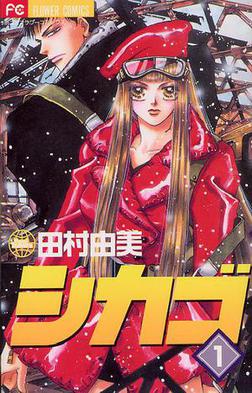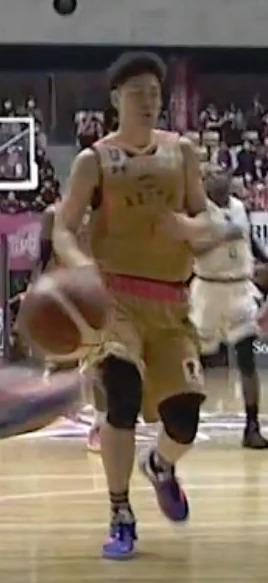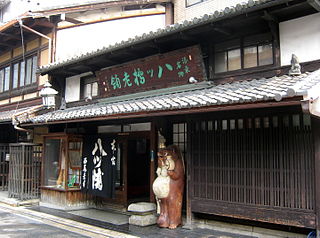
Pocky is a Japanese sweet snack food produced by the Ezaki Glico food company. Pocky was first sold in 1966, and was invented by Yoshiaki Koma. It consists of coated biscuit sticks. It was named after the Japanese onomatopoeic word pokkiri (ポッキリ), which is supposed to resemble the sound of the snack being cracked.

Nobutoshi Hayashi, better known by the stage name Nobutoshi Canna, is a Japanese actor, voice actor, singer and narrator who is affiliated with Aoni Production. He first started acting as a child. Canna is best known for his performances as Tasuki, Ban Mido (GetBackers), Nnoitra Gilga (Bleach), Lancer, Basara Nekki, Kabuto Yakushi (Naruto), Cao Pi in Dynasty Warriors and Warriors Orochi series, Kai Kogashiwa in Initial D anime and mostly video game is Initial D Arcade Stage series from Arcade Stage 4 all the way to Arcade Stage 8 infinity, Guts (Berserk), Knuckles the Echidna, Lee Pai-Long, Brian Stelbart and Nowaki Kusama.

Ezaki Glico Co., Ltd., commonly known as Glico, is a Japanese multinational food processing company headquartered in Nishiyodogawa-ku, Osaka. It does business across 30 countries, in North America, Asia-Pacific and Europe.

Future GPX Cyber Formula is a Japanese futuristic motorsports anime television series produced by the advertising agency Asatsu-DK, the Tokyo-based entertainment producer VAP, and the animation studio Sunrise. The series originally aired between March 15 and December 20, 1991 on Nippon TV and was later followed by four OVA series respectively titled: Double One, Zero, Saga, and Sin. These OVAs are collectively known as Future GPX Cyber Formula 2. The series has also been adapted into multiple games, art-books, toys, audio dramas, and novels.
Kazushige Abe is a contemporary Japanese writer.

Green tea ice cream or matcha ice is ice cream flavored with matcha, or green tea. It is popular in Japan and other parts of East Asia. Matcha ice cream has been available in the United States since the late-1970s, primarily in Japanese restaurants and markets, and became more mainstream in the late 1990s.
The High-Lows were a popular Japanese punk rock band that was formed in 1995. The band stopped all activities in November 2005 and broke up.

Chicago is a Japanese near-future action manga series written and illustrated by Yumi Tamura. It was serialized in Shogakukan's Bessatsu Shōjo Comic magazine from the November 2000 issue to the May 2001 issue. Shogakukan collected the individual chapters into two bound volumes published under the Flower Comics imprint. Viz Media licensed the manga for an English-language release in North America, first serialized in Animerica Extra magazine and later published in graphic novel format.

Matcha (抹茶) is a finely ground powder of green tea specially processed from shade-grown tea leaves. Shade growing gives matcha its characteristic bright green color and strong umami flavor. Matcha is typically consumed suspended in hot water.

Black Rock Shooter, often stylized as Black★Rock Shooter, is a Japanese media franchise based on independent character illustrations created by artist Ryohei Fuke, also known as Huke. It revolves around its eponymous character, a mysterious black haired girl with a blazing blue eye. The original illustration inspired a song of the same name by Supercell featuring the Vocaloid Hatsune Miku, which gained popularity on the Nico Nico Douga website.

The Choshi Electric Railway 1000 series is an electric multiple unit (EMU) train type formerly operated by the private railway operator Choshi Electric Railway in Chiba Prefecture, Japan, from 1994 until 2016. The type originally consisted of two single cars, DeHa 1001 and DeHa 1002, converted from former TRTA subway 2000 series EMU cars, originally built in 1959 and 1960, and introduced from 29 August 1994 to replace the ageing 100 and 500 series EMU cars. Car 1002 was withdrawn in February 2015, and car 1001 was withdrawn in February 2016.

There have been more than 300 limited-edition seasonal and regional flavors of Kit Kat chocolate bars produced in Japan since 2000, many exclusive to the country. Nestlé, which operates the Kit Kat brand in Japan, reports that the brand overtook Meiji Chocolate as the top-selling confectionery in Japan from 2012 to 2014. The company's marketing campaign, which partnered with Japan Post to sell the bar in 20,000 post offices, won an award in 2010. The campaign encouraged associations of the product's name with the coincidental cognate Kitto Katsu (きっと勝つ), translated as "You will surely win", and could be mailed as a good luck charm for students ahead of university exams.

Kengo Nomoto, nicknamed Nomoken, is a Japanese professional basketball player who plays for the Gunma Crane Thunders of the B.League in Japan. The small forward also represented the Japan national basketball team in 2014 and 2016. He tested positive for the coronavirus on November 24, 2020.

Tomica Kizuna Mode Combine Earth Granner is a Japanese anime television series produced and animated by OLM, Inc., based on the long running Tomica series of die-cast metal cars created by Takara Tomy and released for the franchise's 50th anniversary. It is directed by Shinji Ushiro and written by Yuka Yamada with character designs done by Yuko Inoue. It began airing on all TXN stations in Japan on April 5, 2020.

Honke Yatsuhashi Nishio Co., Ltd is a manufacturer and seller of the wagashi Yatsuhashi, with more than 300 years of history. Its headquarters are located in the Sakyō-ku ward of Kyoto.

Kamen Rider Black Sun is a Japanese tokusatsu web political drama reboot of the 1987 television series Kamen Rider Black. A co-production between Ishimori Productions and Toei, the series is directed by Kazuya Shiraishi and was released worldwide through Amazon Prime Video on October 28, 2022. The series is part of the celebrations of the 50th anniversary of the Kamen Rider Series, also celebrating the 35th anniversary of Kamen Rider Black.
Delfi Limited, formerly Petra Foods, is a Singaporean confectionery manufacturer that primarily produces the various brands of chocolate.















